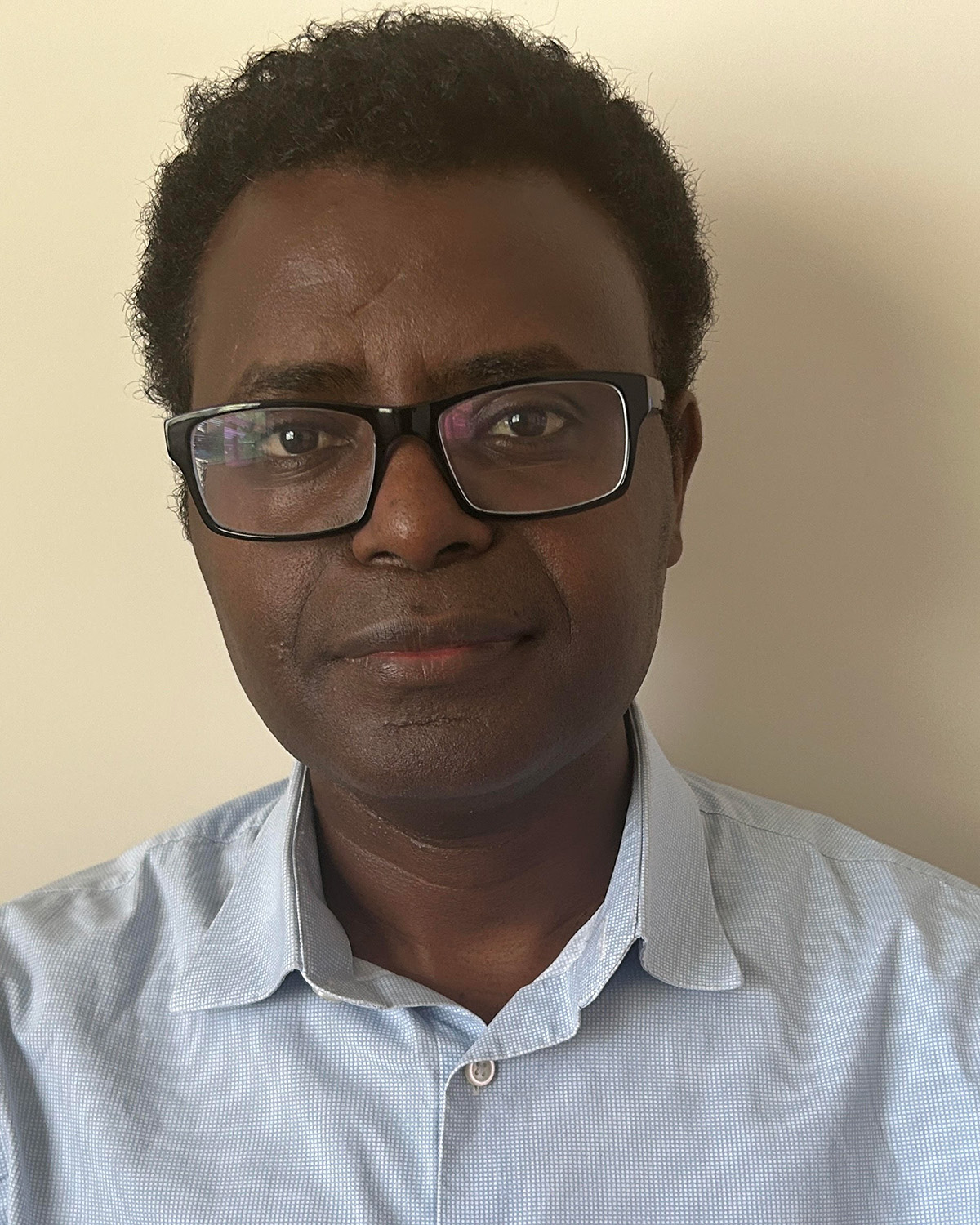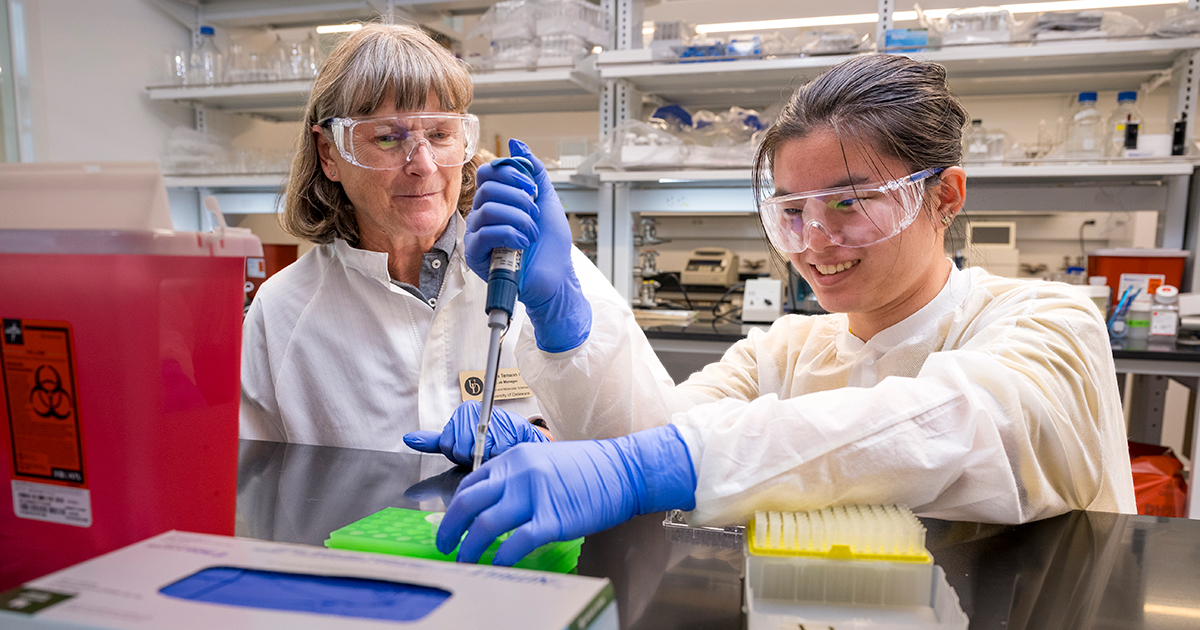
Category: Medical & Molecular Sciences
Department of Medical and Molecular Sciences Welcomes New Faculty
August 27, 2024 Written by Amy Cherry | Photo by Kathy F. Atkinson
The Department of Medical and Molecular Sciences welcomed one new faculty member for the 2024-25 school year. Endale Gebregzabher joined the department as an assistant professor. Learn more about him and what inspired him to pursue a career as an educator.

Endale Gebregzabher
Endale Gebregzabher knew he wanted to pursue a career rooted in science at a young age. He grew up watching his eldest brother practice veterinary medicine in their native Ethiopia.
“He was my role model,” he said.
Gebregzabher has spent the bulk of his career as an academician. For over a decade, the medical biochemist taught aspiring physicians and nurses as an assistant professor at St. Paul’s Hospital Millenium Medical College in Ethiopia. While teaching, he obtained his doctorate and master’s in biochemistry from Addis Ababa University (AAU). He also earned his bachelor’s degree in clinical laboratory science from AAU.
When he came to the U.S. in 2022, Gebregzabher took a position as a clinical lab scientist at the Mayo Clinic in Minnesota.
“Mayo is one of the best medical institutions,” said Gebregzabher. “While I enjoyed my time with Mayo’s Department of Laboratory Medicine and Pathology at Red Wing Hospital, I felt I could be more productive at an academic research institution because of my extensive experience.”
Cue his interest in the University of Delaware College of Health Sciences, where he’ll join the Department of Medical and Molecular Sciences (MMSC) faculty this fall.
“I was impressed with UD’s organizational setup, the staff, and the variety and type of research they do in the MMSC Department,” he said.
This fall, the assistant professor will teach five introductory courses, including Introduction to Medical and Molecular Science, Communication, Education and Ethics in Healthcare, and Body Fluid Analysis. He’ll also be involved in specimen collection, phlebotomy, and specimen processing for clinical lab students.
At UD, Gebregzabher is excited to continue his world-renowned cancer research.
“I want to better understand cancer disparities and the molecular characterizations of breast cancer subtypes,” he said. “A person with the same diagnosis may have a different outcome from their treatment, which is not totally understood.”
He points to higher instances of triple-negative breast cancer in Black women of African origin.
“Higher rates of this aggressive form of cancer are not explainable by economic, social, or demographic factors,” he said.
He was drawn to dig deeper and became the first researcher in Ethiopia to define the molecular characterization of breast cancer. His work culminated in one of his most cited papers, “Breast cancer in Ethiopia: evidence for geographic difference in the distribution of molecular subtypes in Africa,” published BMC Women’s Health in 2018. The paper documents the differences and similarities between breast cancer molecule subtypes between Caucasians and Africans and African Americans versus East Africans.
“The breast cancer subtype is not the same in West Africa as it is in East Africa,” he said. “Even within the continent, there is a molecular and genetic disparity.”
Gebregzabher’s research changed the practice and treatment of breast cancer in Ethiopia.
“Oncologists didn’t know whether hormone therapy was effective because they didn’t know the molecular pathway of breast cancer,” he said. “My research showed them that hormone therapy, in addition to chemotherapy, is a viable treatment option.”
This groundbreaking research allowed him to collaborate with top cancer researchers in the U.S. In 2019, he was named a Fullbright Scholar and worked closely with Dr. Lisa Newman, a surgical oncologist at Cornell University whose research is dedicated to breast cancer management.
But he’s most proud of dedicating his career to contributing to humanity.
“As a clinical lab professional, I supported patients and played an active role in the diagnosis of disease in hundreds of thousands of patients, from parasitic diseases like malaria, which is a fatal disease without a timely diagnosis, to anemia, diabetes, and cancer,” he said.
The student-centered, hands-on assistant professor also hopes to involve graduate students in his research.
“As an educator, I have always been at the top of my field, and I look forward to sharing my knowledge and skills with students at the University of Delaware.”
Gebregzabher lives with his wife and three children in Elkton, Maryland. In his free time, he enjoys spending time with his family, going out to dinner, and exercising at the gym.

